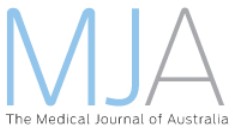
“Medically refractory epilepsy continues to be a challenge worldwide, and despite an increasing number of medical therapies, approximately 1 in 3 patients continues to have seizures.
Cannabidiol (CBD), one of many constituents of the
Cannabis sativa or marijuana plant, has received renewed interest in the treatment of epilepsy. While highly purified CBD awaits Food and Drug Administration (FDA) approval, artisanal formulations of CBD are readily available and are seeing increased use in our patient population.
Although randomized controlled trials of CBD are ongoing and promising, data regarding artisanal formulations of CBD are minimal and largely anecdotal. Here, we report a retrospective study to define the efficacy of artisanal CBD preparations in children with epilepsy.
Given the known interaction between CBD and clobazam, we also conducted a subgroup comparison to determine if clobazam use was related to any beneficial effects of CBD. Additionally, we compared response rates with CBD and with clobazam alone within an overlapping patient cohort. A pediatric cohort with epilepsy of 108 patients was identified through a medical record search for patients using CBD oil.
The addition of CBD resulted in 39% of patients having a >50% reduction in seizures, with 10% becoming seizure-free. The responder rate for clobazam was similar. No patients achieved CBD monotherapy, although the weaning of other antiepileptic drugs (AEDs) became possible in 22% of patients. A comparable proportion had AED additions during CBD therapy. With concomitant use of clobazam, 44% of patients had a 50% reduction in seizures upon addition of CBD compared with 33% in the population not taking clobazam; this difference was not statistically significant. The most common reported side effect of CBD was sedation in less than 4% of patients, all of whom were also taking clobazam.
Increased alertness and improved verbal interactions were reported in 14% of patients in the CBD group and 8% of patients in the CBD and clobazam group. Benefits were more marked in the CBD alone group, in contrast to the CBD and clobazam group, but this difference was not statistically significant.
In summary, these findings support efficacy of artisanal CBD preparations in seizure reduction with few significant side effects. The response to CBD was independent of concurrent clobazam use, although clobazam may contribute to the sedation seen with concurrent CBD use.”
“In this retrospective study, we report that artisanal CBD is helpful in the treatment of medically refractory seizures.”
 “Research is expanding for the use of cannabidiol as an anticonvulsant drug. The mechanism of cannabidiol in paediatric epilepsy is unclear but is thought to play a role in modulation of synaptic transmission. Evidence for its efficacy in treating epilepsy is limited but growing, with a single pharmaceutical company-funded randomised double-blind controlled trial in children with Dravet syndrome. Progress towards the use of medicinal cannabinoids incorporates a complex interplay of social influences and political and legal reform. Access to unregistered but available cannabidiol in Australia outside of clinical trials and compassionate access schemes is state dependent and will require Therapeutic Goods Administration approval, although the cost may be prohibitive. Further clinical trials are needed to clearly define efficacy and safety, particularly long term.”
https://www.ncbi.nlm.nih.gov/pubmed/29438649
“Research is expanding for the use of cannabidiol as an anticonvulsant drug. The mechanism of cannabidiol in paediatric epilepsy is unclear but is thought to play a role in modulation of synaptic transmission. Evidence for its efficacy in treating epilepsy is limited but growing, with a single pharmaceutical company-funded randomised double-blind controlled trial in children with Dravet syndrome. Progress towards the use of medicinal cannabinoids incorporates a complex interplay of social influences and political and legal reform. Access to unregistered but available cannabidiol in Australia outside of clinical trials and compassionate access schemes is state dependent and will require Therapeutic Goods Administration approval, although the cost may be prohibitive. Further clinical trials are needed to clearly define efficacy and safety, particularly long term.”
https://www.ncbi.nlm.nih.gov/pubmed/29438649


 “Among a variety of phytocannabinoids, Δ9-tetrahydrocannabinol (THC) and
“Among a variety of phytocannabinoids, Δ9-tetrahydrocannabinol (THC) and 
 “Medically refractory epilepsy continues to be a challenge worldwide, and despite an increasing number of medical therapies, approximately 1 in 3 patients continues to have seizures.
Cannabidiol (CBD), one of many constituents of the
“Medically refractory epilepsy continues to be a challenge worldwide, and despite an increasing number of medical therapies, approximately 1 in 3 patients continues to have seizures.
Cannabidiol (CBD), one of many constituents of the  “Aldose reductase (ALR2) is a key enzyme involved in diabetic complications and the search for new aldose reductase inhibitors (ARIs) is currently very important.
The synthetic ARIs are often associated with deleterious side effects and medicinal and edible plants, containing compounds with aldose reductase inhibitory activity, could be useful for prevention and therapy of diabetic complications.
Non-psychotropic phytocannabinoids exert multiple pharmacological effects with therapeutic potential in many diseases such as inflammation, cancer, diabetes.
Here, we have investigated the inhibitory effects of extracts and their fractions from two Cannabis sativa L. chemotypes with high content of cannabidiol (CBD)/cannabidiolic acid (CBDA) and cannabigerol (CBG)/cannabigerolic acid (CBGA), respectively, on human recombinant and pig kidney aldose reductase activity in vitro.
A molecular docking study was performed to evaluate the interaction of these
“Aldose reductase (ALR2) is a key enzyme involved in diabetic complications and the search for new aldose reductase inhibitors (ARIs) is currently very important.
The synthetic ARIs are often associated with deleterious side effects and medicinal and edible plants, containing compounds with aldose reductase inhibitory activity, could be useful for prevention and therapy of diabetic complications.
Non-psychotropic phytocannabinoids exert multiple pharmacological effects with therapeutic potential in many diseases such as inflammation, cancer, diabetes.
Here, we have investigated the inhibitory effects of extracts and their fractions from two Cannabis sativa L. chemotypes with high content of cannabidiol (CBD)/cannabidiolic acid (CBDA) and cannabigerol (CBG)/cannabigerolic acid (CBGA), respectively, on human recombinant and pig kidney aldose reductase activity in vitro.
A molecular docking study was performed to evaluate the interaction of these 